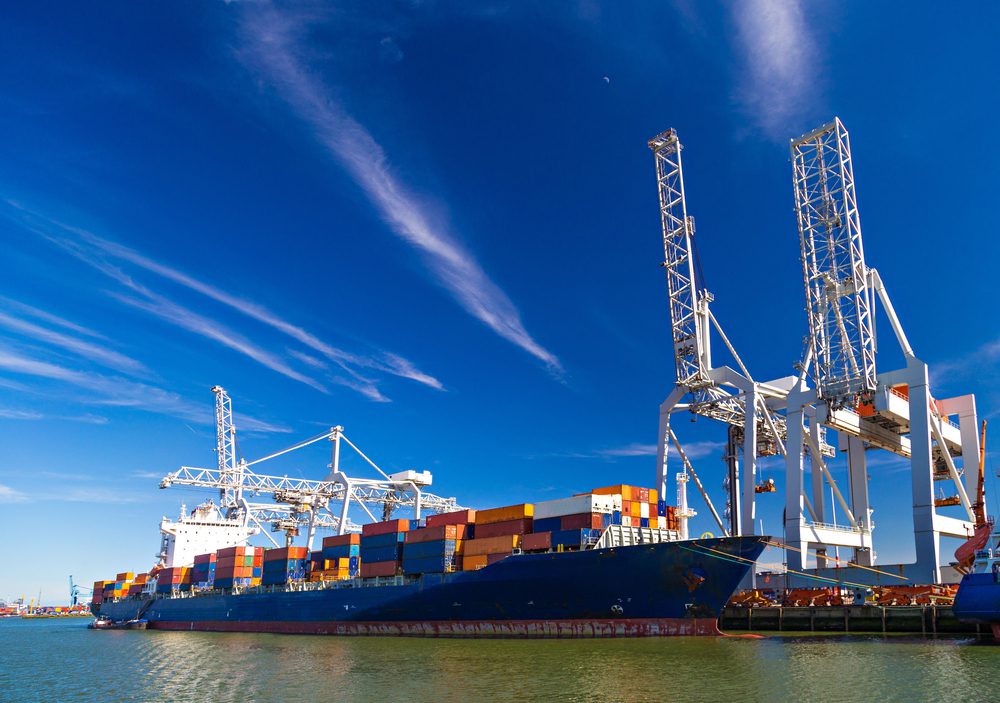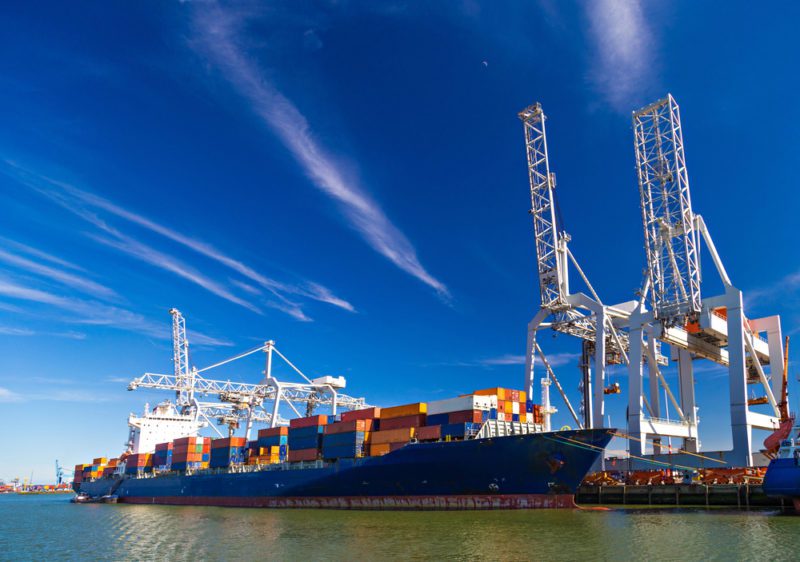U.S. Customs Revenue Tops $100 Billion for First Time Amid Tariff Surge
US revenue from customs duties this fiscal year surpassed $100 billion for the first time, reflecting higher tariffs imposed by the Trump administration.


By Ira Breskin – The world’s container shipping industry is well-positioned to withstand the COVID-19 -induced downtown, say industry experts.
Speakers offered that consensus view last week during the TPM 20: What We Missed: The Economic, Trade and Container Shipping Outlook webcast. The presentation featured talks originally scheduled to be given earlier this month at the canceled annual Trans-Pacific Maritime (TPM) conference in Long Beach, CA that is run by The Journal of Commerce and IHS Markit, its parent.
Carriers have shown discipline during this downturn by quickly reducing sailings in the face of falling demand, said Rahul Kapoor, IHS Markit’s head of Global Research and Analytics, Maritime and Trade. That’s due, in large part, to increased flexibility resulting from the evolution of the newest-generation carrier alliances that date back several years. These alliances have facilitated, ongoing capacity consolidation, to protect rates. Kapoor noted that “subpar container volume is the new normal.”
And fleet growth, a perennial bane of container ship operators during past downturns, is now under control, Kapoor said. A spate of speculative orders for newbuildings is unlikely from carriers that continue retiring their oldest, least-efficient ships to further reduce excess capacity, he said.
Rather than commissioning new tonnage, carriers increasingly are investing in shore-based logistics technology to increase supply chain efficiency. Digital globalization and nearshoring (shortening supply chains by relocating production closer to end markets) will increase, according to Kapoor.
Carriers should expect a short-term spike in traffic shortly as Chinese factories resume filling orders after reopening following the extended annual Chinese New Year shutdown, said Peter Tirschwell, IHS vice president, Maritime and Trade. Those factories account for about 20 percent of the world’s manufacturing capacity.
That spike may be short-lived given weak pandemic-induced consumer demand and retailers’ reluctance to further restock inventory, said Lars Jensen, SeaIntelligence Consulting’s CEO.
Carriers’ long-term strategy is to increase margins by deploying larger, more fuel-efficient, cost-effective ships. They are sailing those ships at lower speeds, benefiting from an outsized reduction in fuel consumption.
The upshot: there is low risk for carrier bankruptcies, Kapoor said. However, small and medium-size carriers are more vulnerable than major ones, SeaIntelligence’s Jensen said.
Carriers’ newfound discipline is timely, given that the industry, like the world economy, faces unprecedented challenges tied to the COVID-19 pandemic. Global trade will decline to negative 1 to 2 percent in 2020, this estimate being subject to lower revision, said Nariman Behravesh, IHS Markit chief economist.
Gross Domestic Product worldwide this year will grow only 0.7 percent, according to Behravesh.
“We have the makings of a global recession. The only question is how deep,” he said.
Annual service contracts, many set to expire April 30 and often re-negotiated in and around the annual TPM conference, are likely to be rolled over, said Mark Szakonyi, executive editor, The Journal of Commerce and JOC.com.
However subsequent contract renewal talks present “a very tricky situation,” said SeaIntelligence’s Jensen given uncertainly about shippers’ needs and carriers’ schedule integrity.
Jensen’s long-term view is that “this pandemic will not change how the industry will look in 2030 or 2050. It will be a bump in the road, a very large bump, indeed.”
The Journal of Commerce has scheduled two additional TPM 20: What We Missed webcasts, one March 26 and the next on April 2 at 1 pm EST. The respective talks are entitled: The Road to El Dorado—The State of Logistics Technology and last, The Trucking and Intermodal Outlook.
Registration is required at JOC.com for these gratis presentations.

Business of Shipping is a column from Ira Breskin, a senior lecturer at State University of New York Maritime College in the Bronx, NY and author of The Business of Shipping (9th edition, 2018), a primer that explains shipping economics, operations and regulations.

Sign up for gCaptain’s newsletter and never miss an update

Subscribe to gCaptain Daily and stay informed with the latest global maritime and offshore news


Stay informed with the latest maritime and offshore news, delivered daily straight to your inbox
Essential news coupled with the finest maritime content sourced from across the globe.
Sign Up